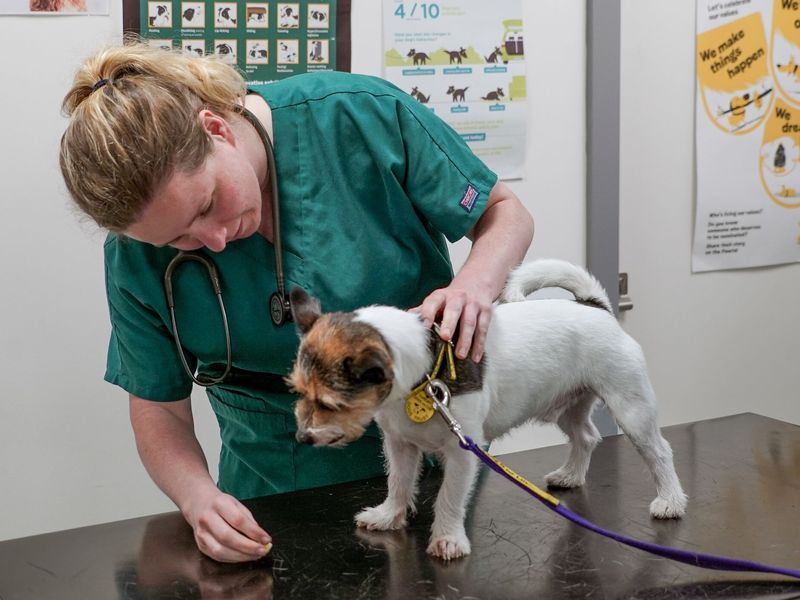Why dog insurance is important
Advice on insurance, why you need it, and the options available.

You never know what’s around the corner, so having pet insurance is an important part of being a responsible dog owner. Vet bills can be significant and may be difficult to deal with if they’re unexpected.
Dog insurance costs may vary depending on your pooch’s age, breed, size, any existing conditions they have, where you live, and the type of policy you choose. When choosing a policy, make sure you research the different options available as the types of things covered will vary. It’s also a good idea to check the excess for each policy (the amount you must pay when making a claim).
Pet insurance policies provide different cover for different periods of time (the maximum amount of money they will pay per condition, and for how long). Policies can be ‘lifetime’, ‘time limited’, ‘maximum benefit’, ‘accident only’, or a combination of these.
In general, the more comprehensive the policy, the higher the premium. You should research exactly what’s covered, the amount of cover provided and for how long the cover is provided when taking out insurance for your dog. For example, some policies might only cover one condition for one year, which may be cheaper than a lifelong policy, but won’t cover chronic conditions that need medication and monitoring for life.
Different types of cover available
Here are the various types of cover, so you can choose the one that best suits you and your dog.
Lifetime
This type of plan will allow you to claim for continual/lifelong conditions. For example, if your dog developed diabetes for the first time after taking out this policy they would then be covered under the policy for the rest of their life. There may be a cap on the total you can claim in a year, which will refresh every year, when your policy is renewed.
Time-limited
This type of plan provides cover for a set period, usually 12 months. After this, the illness or condition is excluded from your cover, meaning you will need to plan to pay the costs relating to this specific illness / condition from that point on. If you’ve claimed for an illness or condition from one policy, it would then be classed as a pre-existing condition by other insurance providers.
Maximum benefit
This type of plan provides cover up to a pre-set limit per condition. Once you reach the limit the condition is not covered anymore and would be classed as a pre-existing condition by other insurance providers.
Third party Liability
This type of plan only covers injury to someone else’s dog or damage to their property, caused by your dog. It won’t cover your own dog’s treatment if they are injured. This may also cover you for legal representation in the event of prosecution.
Join our Companion Club and take advantage of fantastic benefits for dog owners, including third party liability insurance.
Excess
- It’s essential to look at each insurance provider’s excess information. This is the amount you’ll pay when making a claim.
- Most insurers have different excess amounts to choose from. Typically, the higher the excess amount you choose, the lower the premium you pay (but remember, this means you’ll have to pay more towards the cost of any claims you make).
- The amount of excess you need to pay might increase as your dog gets older:
In some cases, insurance providers will expect you to pay a percentage of the bill in addition to the excess, usually related to the age of the dog. E.g., the excess and 25% of the bill when the dog is over 7 years old.
Additional Considerations
All pet insurance policies have varying terms and conditions, make sure you read them carefully. Insurance doesn’t usually cover routine treatments such as vaccinations, parasite treatment, routine dental care, neutering, or pregnancy and giving birth.
Pre-existing conditions aren’t usually covered either. Some may have specific restrictions, such as the time limit for a claim to be made after an injury or illness. Some may cover extras, like the cost of prescription diet food required for your pet’s medical condition.
Some insurance plans also include a free telemedicine service, so you should check with your insurance company if this is included in your policy.
- Telemedicine consults (a virtual consult with a vet) can be an alternative to in-person vet visits when your vet has limited availability, or can help identify if an in-person vet visit is needed.
- If you have any doubt about the urgency of your dog’s condition, your vet practice should be called immediately.
This information is intended for general guidance only.
Dogs rehomed through Dogs Trust receive four weeks of free dog insurance through our partnership with Petplan.
Join Companion Club
Join our Companion Club and take advantage of the great benefits designed specifically for dog owners just like you! Including third party public liability insurance for your dog.
Related articles



